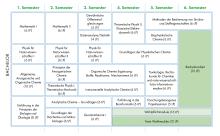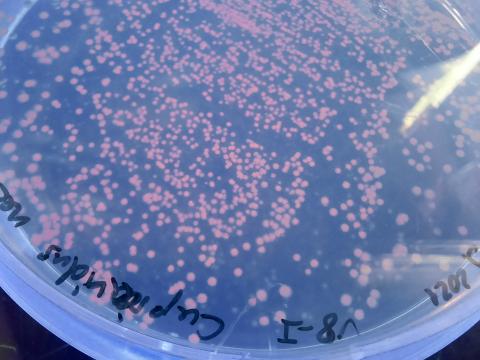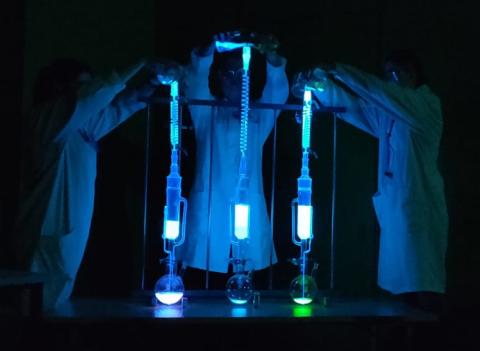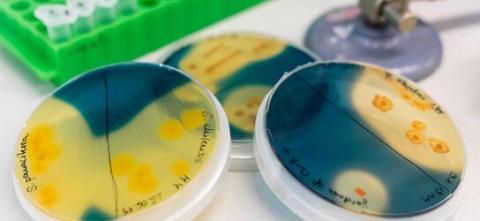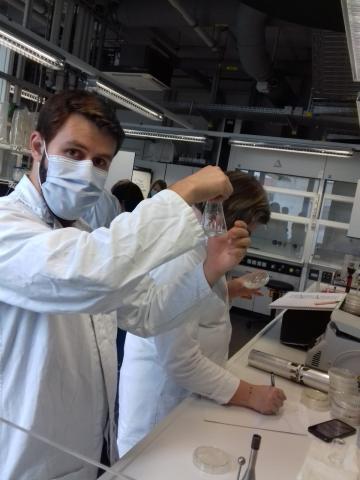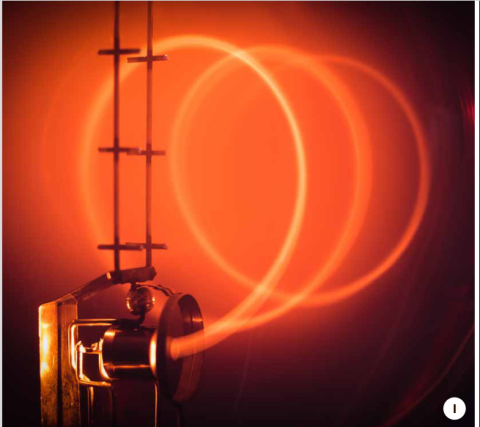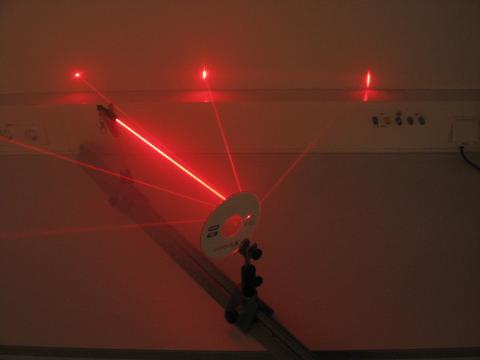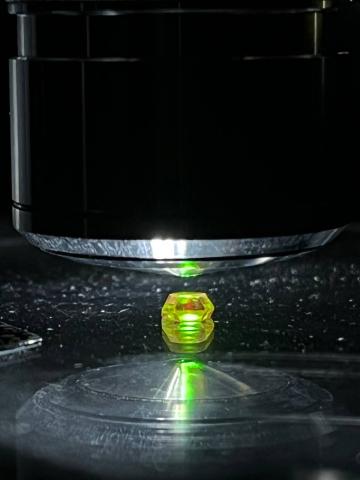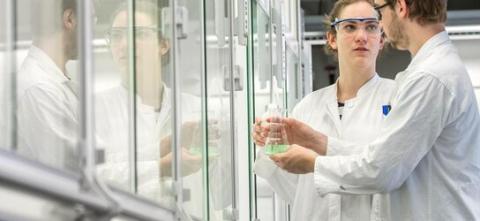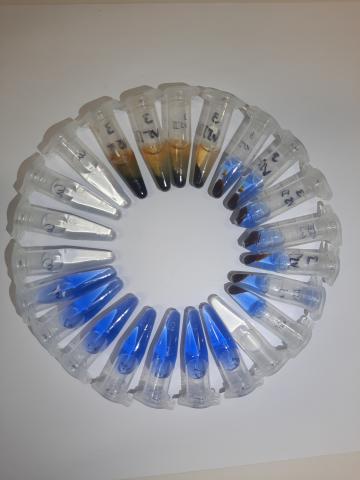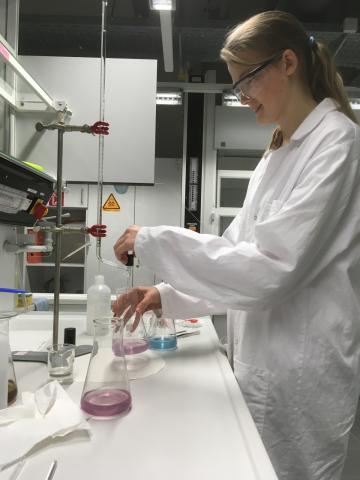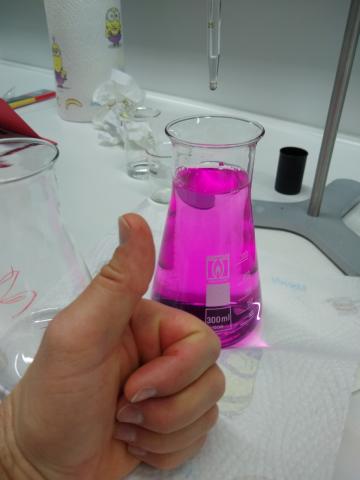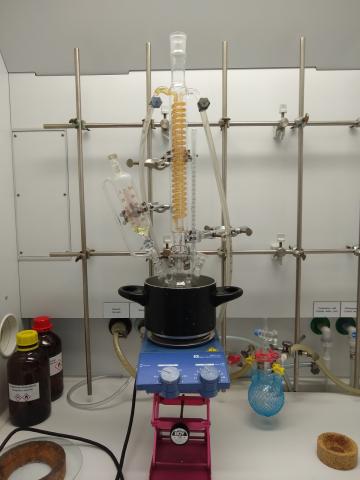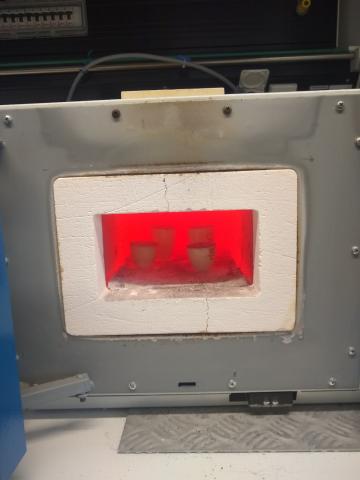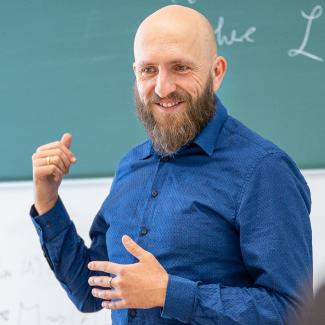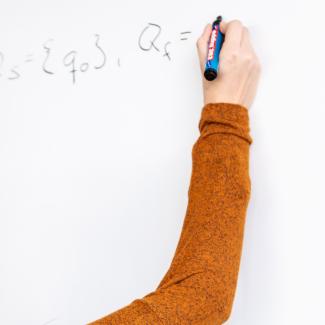Applied Natural Science
The Applied Natural Science study program comprises the three disciplines of physics, chemistry and biotechnology. It combines a broad general education in the natural sciences with application-oriented research and aims to develop interdisciplinary skills and solution strategies.
The Bachelor's degree program teaches a broad range of scientific principles with a high level of practical relevance. In this way, biologists, for example, are trained who have also attended lectures in quantum theory. And physicists who have studied the oxygen production of algae. The study program thus enables students to quickly familiarise themselves with complex interdisciplinary issues and recognise causal relationships. In later professional life, the knowledge acquired can then be easily transferred to a variety of other problems.
The Bachelor's degree program promotes the development and training of both theoretical and practical skills and knowledge in equal measure. The first four semesters focus on solid foundations in maths, physics, chemistry and biology. The fifth and sixth semesters include the so-called specialisation phase, which is based on the Master's specialisations (biotechnology, experimental and theoretical solid state physics, semiconductor technology) with the individually selectable compulsory elective modules and the Bachelor's thesis. In preparation for the Bachelor's thesis, students specialise in a selected subject area.
The degree programme has been optimized so that after successfully completing the Bachelor's and the Master's degree programme in Applied Natural Sciences in the specializations A "Environmental Biotechnology Analysis" or B "Solid State Physics", it is also possible to enter the teaching profession at secondary schools in Saxony.
- Faculty
-
Faculty of Chemistry, Physics and Bioscience (Faculty 2)
- Degree
-
Bachelor of Science (B. Sc.)
- Standard period of study
-
6 Semester
- Part-time possible
-
No
- Start of studies
-
Winter semester
- Admission requirement
-
Abitur or subject-specific higher education entrance qualification or an entrance qualification recognized as equivalent
Language requirement
- Application: with at least B1 level German
- Admission to the study program: with C1 level German (e.g. DSH-2)
- language courses and DSH exam at TUBAF
- Prep Courses (Studienkolleg)
- Course language
-
German
- Research and development in the semiconductor industry, e.g. at Bosch, FCM, Global Foundries, Hanwha QCells, Infineon, Intel, Meyer Burger, Siltronic, TSMC, X-FAB, etc.
- Small and medium-sized companies: Production and services in scientific and technical fields
- Research, development and management: In particular interdisciplinary basic and applied research and development in physics, chemistry, biotechnology, pharmacy, life sciences and materials science
- Clinics, laboratories, institutes of large research organisations such as the Max Planck and Max Planck Society, the Max Planck Society and the Max Planck Society.e.g. the Max Planck and Fraunhofer Societies or the Helmholtz or Leibniz Associations, large research institutions
- Large-scale industry: in areas such as environmental protection, sales, public relations, patents
- Side entry into the teaching profession at secondary schools in Saxony for the subjects Physics / Chemistry
Image Film Applied Natural Science
Why study Angewandte Naturwissenschaft (Applied Natural Sciences) at TUBAF?
If you are interested in all natural sciences and would like to keep open the possibility of a directly subsequent German-language Master's degree with various specialisations, TUBAF offers you a unique course of study in Germany with the "Applied Natural Science" study program! Here you can acquire in-depth scientific knowledge and skills to work on the major challenges of our time - from energy generation, storage and conversion to nano- and microelectronics and biotechnology. And all this in an informal atmosphere with ideal supervision conditions.
Information on further study programmes at TUBAF
Students who have completed a Bachelor's degree in Applied Natural Science are guaranteed a place on the postgraduate Master's degree programme "Applied Natural Science". Here you can choose one of the four specialisations
- Environment - Biotechnology - Analytics
- Solid State Physics
- Semiconductor Technology and Photovoltaics
- Theory of the Electron Structure of Materials
Of course, you still have the option of choosing interdisciplinary modules.
If you decide to focus entirely on chemistry, you can also continue your studies on the Master's degree programme "Chemistry". On the international, English-language "Advanced Materials Analysis", on the other hand, you can specialise in the fields of materials and materials analysis.
Interests and skills you should bring with you
- Interest in the natural sciences of biology, physics and chemistry
- Interest in interdisciplinary contexts
- Fundamental mathematical understanding
What Alumni say
When studying NAT, you deal with very different and constantly new subject areas. This allows you to build up a very broad range of knowledge. This dynamic education prepares you optimally for research and industry-related professions.
Dr Patrick Hofmann - Development Engineer at Freiberger Compound Materials GmbH
I studied Applied Natural Sciences because it is broader than a pure chemistry degree programme. I also liked the fact that the university is not so big and you get a personal relationship with the supervisors.
M.Sc. Sandra Jankus - Development Engineer at Frolyt GmbH in Freiberg
When studying NAT, you deal with very different and constantly new subject areas. This allows you to build up a very broad range of knowledge. This dynamic education prepares you optimally for research and industry-related professions.
Dr. Patrick Hofmann - Development Engineer at Freiberger Compound Materials GmbH
I studied Applied Natural Sciences because it is broader than a pure chemistry course. I also liked the fact that the university is not so big and you get a personal relationship with the supervisors.
M.Sc. Sandra Jankus - Development Engineer at Frolyt GmbH in Freiberg
A degree course that teaches the basics of chemistry, biology, physics and math. So I didn't have to choose a subject straight away. In addition, the TU Bergakademie has a good reputation in terms of the supervisor-to-student ratio and the chance of good laboratory places.
Dr.-Ing. NAT Caroline Hommel - Research Assistant at the Center for Quantum Nanoscience in Seoul, South Korea
Current insights into studying can be found on the Faculty of Chemistry and Physics' social media channels: Instagram @tubaf_nat and TikTok @tubaf_nat
